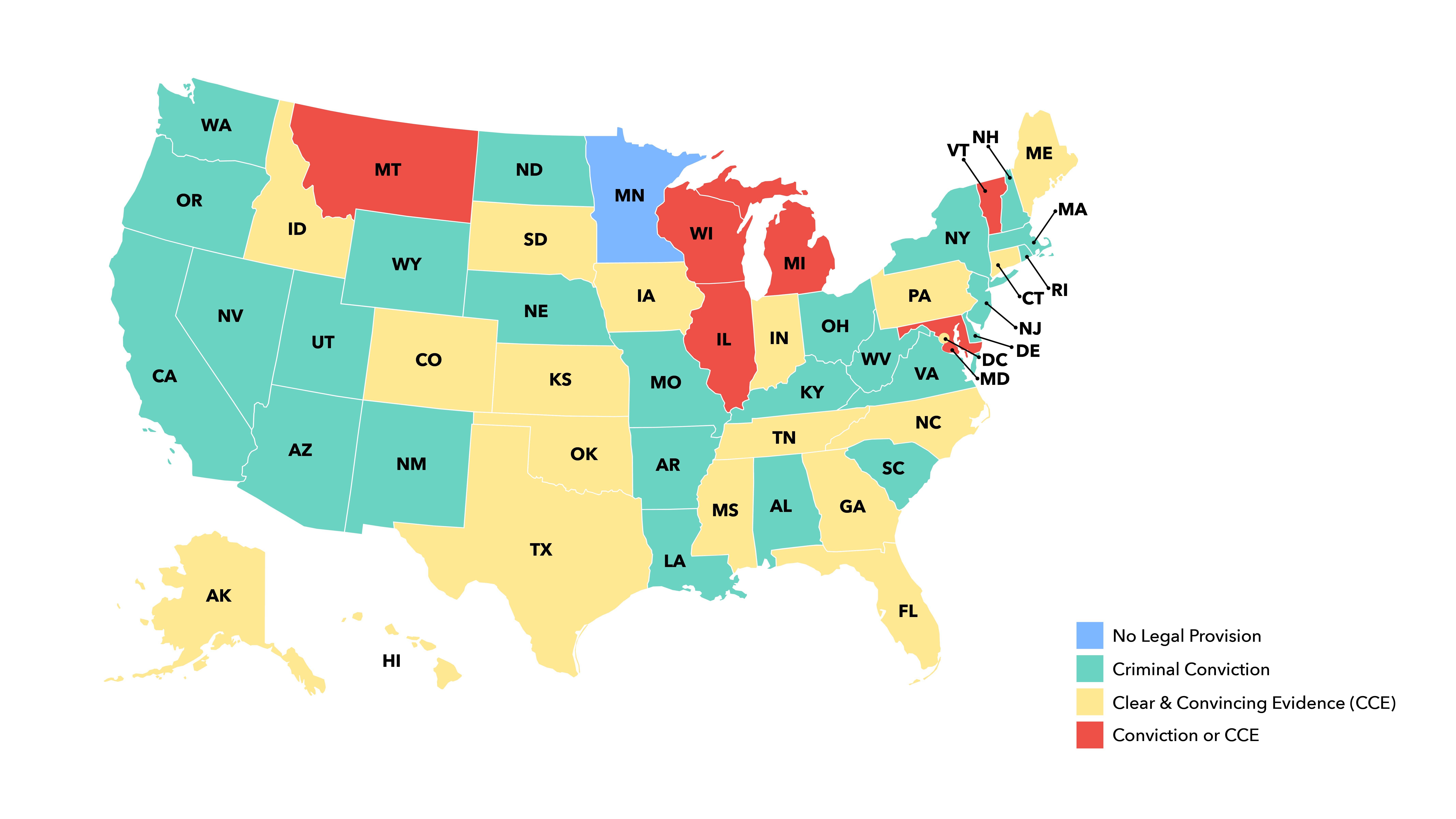united-states
The treatment of how paternity is handled in cases of rape, from which child support and child custody determinations flow, varies by U.S. state in the United States as a result of an ongoing and recent wave of legislative innovation, prompted by cases in which convicted male rapists sought child custody in connection with children conceived in acts of rape for which they were convicted. A state by state summary of the applicable laws as of January 2020 (which oversimplifies the situation in which there are additional distinctions not noted, some of which are differences in wording that could be relevant to how these statutes apply in the OP case) can be found here.

All of these laws are targeted at the case of a woman raped by a man who becomes pregnant, which is factually predominant, something that happens many thousands of times each year in the United States as a whole, and not at the case of a man who, in the course of being raped by a female, causes the female to become pregnant as a result.
Cases of men being raped that are handled by the legal system, and do not involve statutory rape, predominantly involve sexual interaction that is not reproductive, i.e. something other than a man involuntarily having vaginal sex with a woman, often prison rape by a same sex inmate or rape with an object, and also, as in other cases of rape, often doesn't result in a conception of a child due to random chance. Likewise, many women convicted of rape are convicted as co-participants in a crime that involves physical penetration of a victim by a man or an object, rather than sexual intercourse with the woman convicted of the crime. So, the number of cases that could potentially be litigated with respect to this issue is much smaller.
It is also worth noting that under U.S. criminal law, sexual intercourse procured by deception (other than deception regarding the person with whom one is having sex, for example, because of a blindfold or darkness, or deception regarding one's status as a medical practitioner making a medical examination, or as a law enforcement officer making a legally authorized cavity search) is not a crime and does not constitute rape.
Also, generally speaking, having sex consensually in a manner not intended to lead to conception, which, in fact, does result in conception with consent to the sex giving rise to conception (e.g. where there is an agreement to "pull out" that isn't performed due to the acts of one or both parties involved), will almost never be prosecuted criminally as rape, whether or not a jury with perfect knowledge of the facts of the interaction could convict under the law of the minority of U.S. states where this might be possible.
As @user6726 notes, the primary fact pattern related to the OP historically has involved instances of intercourse that are consensual in fact, but constitute statutory rape due to the age of the father which makes it impossible for him to legally consent, and in those cases, the default rule that the biological father of a child is recognized as the father for custody and child support purposes has been the predominant rule.
But much of that case law predates modern rapist-paternity statutes and there is an equal protection argument that those statutes should have a parallel construction, although to the best of my knowledge, there are no reported appellate cases that have tested that issue. It remains an open issue of first impression in most, if not all, jurisdictions that have adopted rape-paternity statutes.
In Minnesota, which had not adopted such a statute as of January 2020, being raped would not be a defense to a paternity, child custody, or child support claim.
